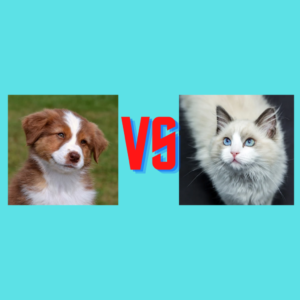

How to Make a Decision
When deciding whether to get a cat or a dog, think about how much time you can devote to the pet (dogs demand more time than cats and don’t like to be left alone), how much money you have (dogs are more expensive than cats), and what temperament you want (dogs are more needy and affectionate than independent cats).
Consider whether you want a purebred cat from a breeder or a rescue cat from an animal shelter when picking a cat. If you aren’t buying a kitten, think about whether you want an indoor or outdoor cat and make your decision accordingly, as various cats are trained for different settings. Distinct breeds have different temperaments, but they differ less than dogs in this regard. Siamese cats, for example, are intelligent and energetic but may be loud, whereas long-haired cats are laid-back and short-haired cats are friendly and even-tempered. Individual cats have distinctive personalities, so get to know them before bringing them home.
Consider the length of your hair, as longer fur, such as that of a Maine Coon or Persian cat, is more difficult to manage. Consider the size of the dog before making your selection. Larger dogs, such as German Shepherds and Labrador Retrievers, require more space and are more expensive to feed and care for. Labradors, Corgis, and Spaniels, for example, are easier to teach and have a more amiable temperament than other breeds. Consider the length of the dog’s coat, as those with longer coats will require more care on a regular basis. Although purebreds are popular, they are more prone to behavioural and health issues. Mixed breed dogs are less likely to have health issues and can be adopted for less money from shelters.
Difference between cat and dog
Care
Equipment
Cats require a food and water bowl, a litter box, a few toys and scratching posts, and a brush for grooming.
Dogs require a food and water bowl, a leash and collar, a dog bed, toys and chews and treats.
Feeding
A cat’s calorie need varies based on its size, however cats consume less than most dogs. Cat food is available in both dry and canned moist forms. The daily calorie requirement for adult cats is between 250 and 300 calories.
The amount of food a dog consumes is determined by its size. Most dogs require between 25 and 30 calories per pound per day, and commercial dog food is available in both dry and moist varieties.
Grooming
Cats do not need bathing, but they should be brushed regularly if they have long hair.
Dogs –especially those with long hair – need grooming and bathing frequently.
Both cats and dogs can get infected with ticks, lice, fleas and other pests. When this happens, disinfectants like Frontline or Advantix are required to rid the pets of the infection. Some of these chemicals contain harmful pesticides. Care must also be taken to ensure Advantix is used only on dogs because it is very dangerous for cats.
Health
Cats have an average lifespan of 12 to 14 years, although they can survive well into their 20s or even 30s.
The life expectancy of dogs, which ranges from 7 to 14 years, varies by breed, with larger types living shorter lifetimes, similar to that of wolves. The eldest dog in the litter was 29 years old. Medical expenditures for dogs vary based on their size and pre-existing health concerns.
Training in the House
Cats normally know how to use a litterbox or can be readily trained to do so. This necessitates daily cleaning.
Dogs must be socialised, trained, and housebroken. Training lasts about two months on average.
Space
Cats can survive in cramped spaces, however dogs require more space to run around in. Cats can be kept inside, but dogs must be walked on a regular basis — at least twice per day.

